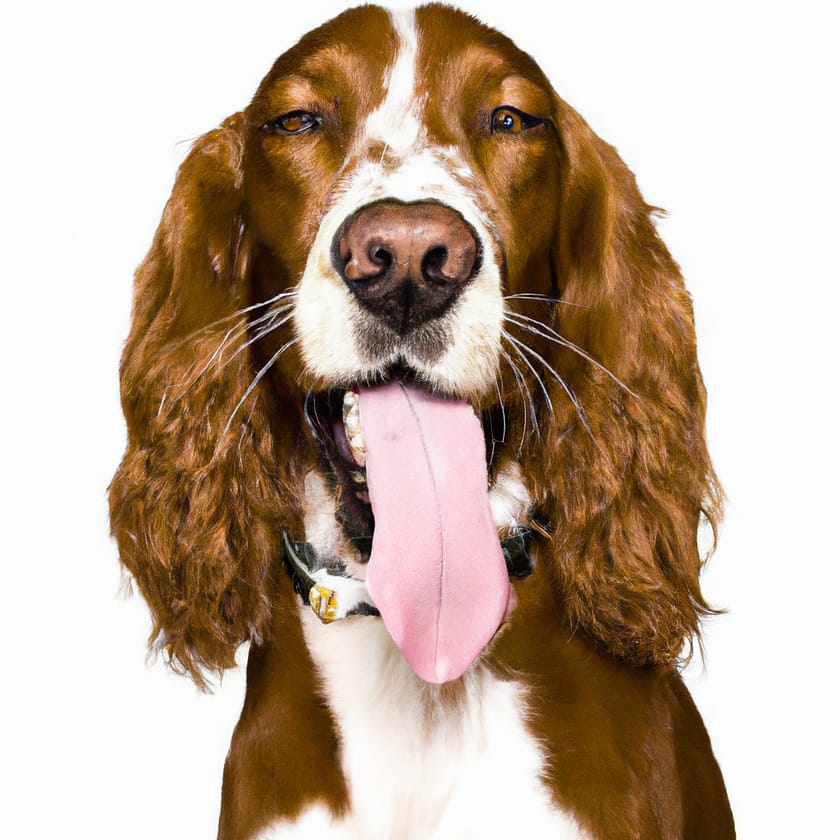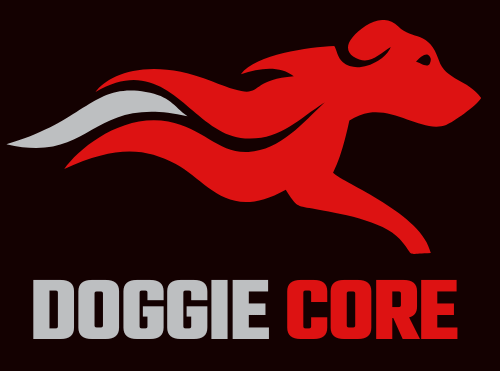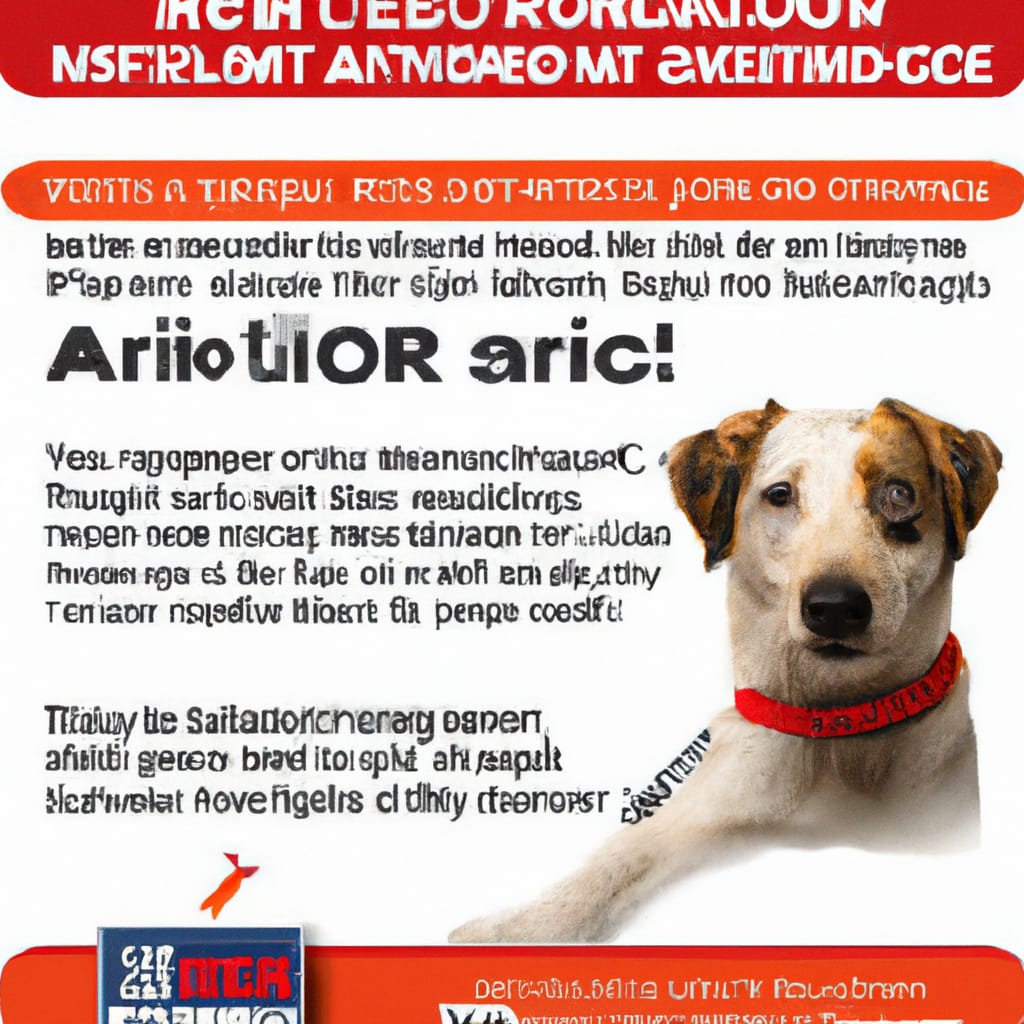Is Your Dog Coughing A Lot? It Could Be Caused By A Collapsed Trachea
If you’ve noticed your furry friend constantly coughing, it may be a cause for concern. While it’s normal for dogs to cough occasionally, persistent and repetitive coughing can be a sign of an underlying health issue. One possible culprit for this repetitive cough is a condition called a collapsed trachea. In this article, we will explore what a collapsed trachea means for your beloved pup and what you can do to help them find relief. So, if you’ve been wondering why your dog has been coughing a lot lately, keep reading to discover more about this potential culprit.
Overview of Collapsed Trachea in Dogs
A collapsed trachea in dogs occurs when the trachea, or windpipe, becomes narrowed or loses its rigidity, making it difficult for your furry friend to breathe properly. This condition is most commonly seen in small breed dogs, such as Yorkshire Terriers, Chihuahuas, and Pomeranians. Understanding the causes, symptoms, and treatment options for a collapsed trachea is essential for providing the best care for your beloved pet.
Definition
The trachea is a tubular structure that carries air from the nose and mouth to the lungs. When the trachea weakens or collapses, it can obstruct the airflow and cause respiratory difficulties. The collapse can occur in different parts of the trachea, including the rings of cartilage that normally support its structure.
Causes
The exact cause of a collapsed trachea in dogs is not always clear. However, there are several factors that can contribute to the development of this condition. One common cause is genetic predisposition, as certain small breed dogs are more prone to tracheal weakness. Other causes can include chronic respiratory infections, allergies, obesity, or trauma to the neck area.
Risk Factors
Certain factors can increase the likelihood of a dog developing a collapsed trachea. These include being a small breed dog, advanced age, obesity, and exposure to environmental irritants such as cigarette smoke or air pollution. It’s important to be aware of these risk factors and take appropriate measures to prevent or manage a collapsed trachea in your canine companion.
Symptoms of Collapsed Trachea
Recognizing the symptoms of a collapsed trachea is crucial for early detection and treatment. Keep an eye out for the following signs in your dog:
Coughing
One of the most common symptoms of a collapsed trachea in dogs is a persistent, harsh cough. This cough may sound like a honking noise and can be triggered by excitement, exercise, or pressure on the trachea. If your dog’s coughing episodes become frequent or severe, it’s time to seek veterinary attention.
Breathing Difficulty
Dogs with a collapsed trachea may experience breathing difficulties, especially during physical exertion or when the airway becomes more constricted. You may notice your dog struggling to catch their breath, wheezing, or making abnormal respiratory sounds. Difficulty breathing should never be ignored and should prompt immediate veterinary evaluation.
Gagging or Retching
In some cases, a collapsed trachea can cause episodes of gagging or retching in dogs. These episodes may be triggered by coughing or attempts to clear the airway. If your dog seems to be struggling with these symptoms, it’s important to consult your veterinarian.
Exercise Intolerance
Due to the restricted airflow, dogs with a collapsed trachea may have difficulty exercising. Activities that once were manageable may become exhausting for them. If you notice your dog becoming easily fatigued or unwilling to engage in physical activities, it’s best to consult with your vet.
Fainting or Collapsing
In severe cases of a collapsed trachea, dogs may faint or collapse due to the lack of oxygen reaching their lungs. This is a medical emergency and requires immediate veterinary attention. If your dog loses consciousness or collapses, seek veterinary care without delay.

Diagnosing a Collapsed Trachea
If you suspect that your dog may have a collapsed trachea, it is essential to have them evaluated by a veterinarian. The following diagnostic methods may be used to confirm the condition:
Physical Examination
During a physical examination, your veterinarian will listen to your dog’s breathing and assess their overall health. They may palpate the neck area to check for any abnormalities or discomfort. The physical examination provides valuable initial information about your dog’s condition.
X-rays
X-rays are commonly used to evaluate the trachea and check for signs of collapse. This diagnostic tool can help identify any abnormalities in the trachea’s structure and assess the severity of the collapse. X-rays also allow the veterinarian to rule out other possible causes of your dog’s symptoms.
Fluoroscopy
In some cases, veterinarians may recommend a fluoroscopy, which is a real-time X-ray technique. It enables the vet to observe the trachea in motion while your dog is breathing. This dynamic imaging method provides valuable insights into the function and level of collapse in the trachea.
Bronchoscopy
In more complex cases, a bronchoscopy may be necessary to visualize the trachea directly. This minimally invasive procedure involves inserting a flexible tube with a camera into the trachea, allowing the veterinarian to assess the degree of collapse and identify any other underlying issues.
Treatment Options for Collapsed Trachea
The treatment options for a collapsed trachea in dogs vary depending on the severity of the condition and the individual dog’s health. The following treatment options may be considered:
Conservative Management
In mild cases, conservative management may be sufficient to alleviate the symptoms and improve your dog’s quality of life. This approach typically includes lifestyle modifications, such as avoiding triggers, reducing stress, and keeping your dog in a calm environment.
Medication
Medication can help manage the symptoms and improve your dog’s breathing. Cough suppressants may be prescribed to reduce the frequency and severity of coughing episodes. Bronchodilators are another type of medication that can help widen the airways, making it easier for your dog to breathe. Anti-inflammatory drugs may also be prescribed to reduce inflammation in the trachea and alleviate symptoms.
Weight Management
For dogs that are overweight or obese, weight management is an essential part of treatment. Excess weight can put additional pressure on the trachea, exacerbating the symptoms. Your veterinarian can provide guidance on proper nutrition and exercise to help your dog maintain a healthy weight.
Surgical Intervention
In severe cases of a collapsed trachea, surgical intervention may be necessary. Several surgical options exist, including tracheal stenting, tracheal rings replacement, and even tracheal resection and anastomosis. These procedures aim to stabilize and restore the normal function of the trachea, improving your dog’s breathing.

Preventing Collapsed Trachea
While not all cases of a collapsed trachea can be prevented, there are steps you can take to reduce the risk and manage the condition:
Avoiding Collar Pressure
Avoid using collars that put pressure on your dog’s neck or trachea. Opt for a harness instead, which distributes pressure more evenly across the chest and shoulders.
Managing Respiratory Infections
Minimize the risk of respiratory infections in your dog by keeping their vaccinations up-to-date and avoiding contact with sick or contagious dogs. Regular veterinary check-ups can help catch any potential infections early.
Reducing Environmental Irritants
Limit your dog’s exposure to environmental irritants, such as cigarette smoke, dust, and pollution. These irritants can worsen the symptoms of a collapsed trachea, so it’s important to create a clean and healthy living environment.
Maintaining a Healthy Weight
Help your dog maintain a healthy weight through proper nutrition and regular exercise. Obesity puts additional strain on the trachea and can exacerbate the symptoms of a collapsed trachea.
Living with a Dog with a Collapsed Trachea
If your dog has been diagnosed with a collapsed trachea, there are steps you can take to help them live comfortably:
Providing a Calm Environment
Create a calm and stress-free environment for your dog. Loud noises, excessive physical activity, and excitement can trigger coughing episodes and breathing difficulties.
Avoiding Triggers
Learn to identify and avoid triggers that worsen your dog’s symptoms. These triggers can vary from dog to dog, so pay attention to your pet’s reactions and adjust their environment accordingly.
Monitoring Respiratory Symptoms
Keep a close eye on your dog’s respiratory symptoms and report any changes or worsening of symptoms to your veterinarian. Regular monitoring will help ensure that your dog’s condition is properly managed.
Regular Vet Check-ups
Schedule regular check-ups with your veterinarian to monitor your dog’s condition and address any concerns. Routine examinations and diagnostic tests can help identify any underlying issues and ensure that the treatment plan is effective.
When to Seek Veterinary Care
While you may be able to manage mild symptoms of a collapsed trachea at home, there are situations where immediate veterinary care is necessary:
Persistent or Worsening Symptoms
If your dog’s symptoms persist or worsen despite conservative management and medication, it is time to consult with your veterinarian. Additional diagnostic tests may be needed to evaluate the effectiveness of the current treatment plan.
Severe Breathing Difficulties
If your dog experiences severe breathing difficulties, becomes distressed, or shows signs of respiratory distress, seek veterinary care immediately. These signs may indicate a medical emergency and require immediate intervention.
Inability to Eat or Drink
If your dog shows signs of difficulty eating or drinking, such as coughing or choking during meals, they may require urgent veterinary attention. Inability to nourish themselves properly can lead to further complications and should not be ignored.
Potential Complications of Collapsed Trachea
If left untreated or poorly managed, a collapsed trachea can lead to several potential complications:
Respiratory Infections
The narrowed trachea can make dogs more susceptible to respiratory infections, such as bronchitis or pneumonia. These infections can further compromise your dog’s breathing and overall health.
Pneumonia
In severe cases, a collapsed trachea can lead to the development of pneumonia. The weakened trachea can allow bacteria to enter the lungs, causing infection and inflammation.
Secondary Heart Problems
The continuous strain on the respiratory system due to a collapsed trachea can put additional stress on the heart. Over time, this can lead to the development of secondary heart problems, such as heart murmurs or congestive heart failure.
Alternative Therapies for Collapsed Trachea
In addition to traditional medical treatments, some dog owners may explore alternative therapies to support their dog’s health and well-being:
Acupuncture
Acupuncture, a practice rooted in traditional Chinese medicine, may be used as a complementary therapy for dogs with a collapsed trachea. The insertion of thin needles at specific points can help promote balance and alleviate symptoms.
Herbal Remedies
Certain herbal remedies and supplements may be suggested by holistic veterinarians to support respiratory health and reduce inflammation. Herbs such as marshmallow root and licorice can have soothing effects on the trachea.
Supplements
Supplements such as omega-3 fatty acids and glucosamine may be recommended for dogs with a collapsed trachea. These supplements can help reduce inflammation and support overall respiratory health.
It’s important to note that alternative therapies should never replace proper medical treatment and should only be pursued under the guidance of a qualified veterinarian.
Conclusion
A collapsed trachea in dogs can significantly impact their quality of life and overall well-being. By recognizing the symptoms, seeking proper diagnosis and treatment, and taking preventive measures, you can help manage the condition and provide the best possible care for your furry friend. Regular veterinary check-ups and open communication with your veterinarian will ensure that your dog’s collapsed trachea is properly managed, enabling them to lead a happy and comfortable life.












